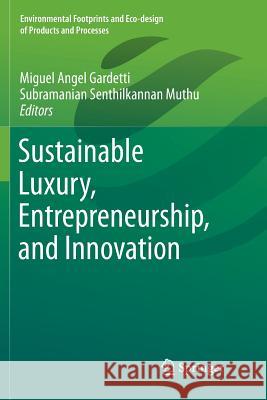Sustainable Luxury, Entrepreneurship, and Innovation » książka
topmenu
Sustainable Luxury, Entrepreneurship, and Innovation
ISBN-13: 9789811349379 / Angielski / Miękka / 2019 / 207 str.
Kategorie BISAC:
Wydawca:
Springer
Seria wydawnicza:
Język:
Angielski
ISBN-13:
9789811349379
Rok wydania:
2019
Wydanie:
Softcover Repri
Ilość stron:
207
Waga:
0.31 kg
Wymiary:
23.39 x 15.6 x 1.17
Oprawa:
Miękka
Wolumenów:
01
Dodatkowe informacje:
Wydanie ilustrowane











